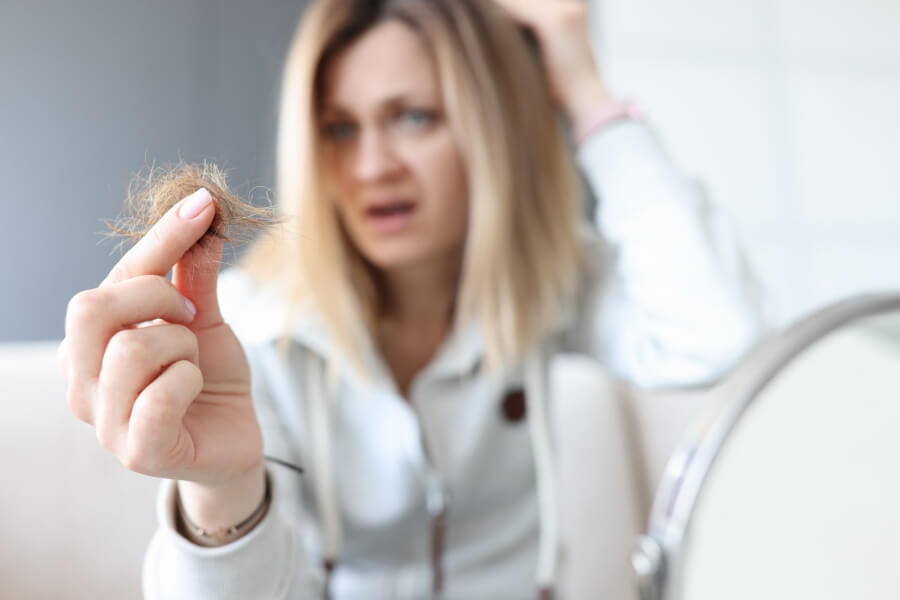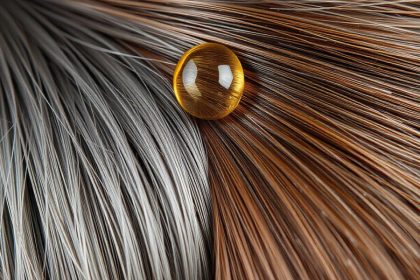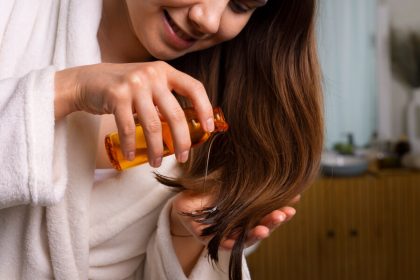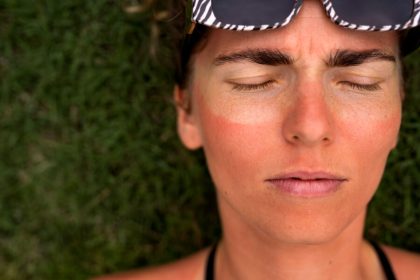Postpartum hair loss can be a surprising and distressing experience for many new mothers. After the joy of welcoming a baby, noticing hair fall in your brush or shower can be hard on you.
But don’t worry there are effective natural remedies and nutritional support options available to help you strengthen your hair and promote regrowth. While understanding postpartum hair loss and exploring some practical solutions!
Postpartum Hair Loss
Postpartum hair loss, also known as telogen effluvium, refers to the excessive loss of hair that many women experience after giving birth.
During pregnancy, hormonal changes cause your hair to enter a prolonged growth phase, leading to thicker, fuller hair. However, after childbirth, hormone levels fluctuate, triggering many hair follicles to enter the resting phase, resulting in increased hair loss.
How Does Postpartum Hair Loss Occur?
The process begins with a significant drop in estrogen and progesterone levels after delivery. These hormones play an important role in maintaining the hair growth cycle.
As their levels decrease, hair follicles that were once in the growth phase transition to the loss phase. This process can start around three months postpartum and may last for several months.
How Long Does Postpartum Hair Loss Last?
For most women, postpartum hair loss peaks around four to six months after giving birth and typically resolves within six to twelve months.
While it can be concerning, it’s important to remember that this condition is usually temporary, and with the right support, your hair will likely return to its pre-pregnancy state.
The Role of Nutrition in Postpartum Hair Loss
Nutrition plays a vital role in hair health. During pregnancy and postpartum, your body requires essential nutrients to support not only your health but also your baby’s growth and development. A lack of these nutrients can contribute to postpartum hair loss.
Common Nutritional Deficit Leading to Postpartum Hair Loss
- Iron: Low iron levels can lead to anemia, a condition known to cause hair shedding.
- Biotin: This B vitamin is essential for hair health. A deficiency can result in brittle hair and hair loss.
- Zinc: Important for cell growth and repair, zinc deficiency can impede hair regrowth.
- Vitamin D: This vitamin is important for hair follicle cycling; insufficient levels may contribute to hair loss.
- Protein: Hair is primarily made of a protein called keratin. Inadequate protein intake can affect hair strength and growth.
By addressing these nutritional gaps, you can significantly improve your hair’s resilience and support regrowth in cases of postpartum hair loss.
Natural Remedies for Postpartum Hair Loss
Here are some effective natural remedies that can aid in managing postpartum hair loss:
Adding Essential Vitamins and Minerals
Focus on a balanced diet rich in vitamins and minerals. Some essential nutrients for hair health include:
- Biotin: Found in eggs, nuts, and whole grains, biotin helps strengthen hair.
- Vitamin E: This antioxidant is found in nuts and green leafy vegetables, promoting circulation to the scalp.
- Vitamin D: Get sun exposure and include fatty fish, fortified dairy, and mushrooms in your diet to boost vitamin D levels.
Herbal Remedies for Hair Growth
Several herbs are known for their hair-enhancing properties. Consider these options:
- Rosemary Oil: Known to stimulate blood circulation to the scalp, promoting hair growth. You can dilute it with a carrier oil and massage it into your scalp.
- Saw Palmetto: This herbal remedy may help block DHT, a hormone linked to hair loss.
- Nettle Leaf : Rich in minerals and vitamins, nettle can nourish the hair follicles.
Aromatherapy and Scalp Massage
Aromatherapy can be a relaxing way to support hair growth. Essential oils like lavender, peppermint, and cedarwood may promote hair health.
Pair these oils with a gentle scalp massage to stimulate blood flow, which is important for delivering nutrients to the hair follicles.
Foods for Healthy Hair Growth
Add these hair-friendly foods to your diet to combat postpartum hair loss:
- Eggs: A great source of biotin and protein.
- Berries: Rich in antioxidants and vitamin C, which helps produce collagen, vital for hair structure.
- Spinach: Packed with iron, vitamins A and C, and folate, all of which promote hair growth.
- Fatty Fish: Salmon and mackerel are rich in omega-3 fatty acids, which can boost hair density.
Recipes for Nourishing Meals to Support Hair Health
Here are two simple recipes to help you get started:
Spinach and Mushroom Omelet
Ingredients:
- 2 eggs
- A handful of fresh spinach
- ½ cup of sliced mushrooms
- Salt and pepper to taste
- Olive oil
Instructions:
- Heat olive oil in a pan.
- Sauté mushrooms until tender, then add spinach.
- Pour in the beaten eggs and cook until set.
- Season with salt and pepper. Enjoy this nutrient-packed breakfast to support hair health!
Berry and Yogurt Smoothie
Ingredients:
- 1 cup of mixed berries (strawberries, blueberries, raspberries)
- 1 cup of Greek yogurt
- 1 tablespoon of honey
- 1 tablespoon of chia seeds
Instructions:
- Blend all ingredients until smooth.
- Pour into a glass and enjoy a refreshing, antioxidant-rich snack that promotes hair growth.
Lifestyle Changes to Combat Postpartum Hair Loss

Stress Management Techniques
High stress levels can increase postpartum hair loss. Consider adding stress-reduction techniques to your routine:
- Mindfulness and Meditation: Spend a few minutes daily focusing on your breath and clearing your mind.
- Gentle Exercise: Activities like yoga and walking can help reduce stress while promoting overall health.
- Quality Sleep: Prioritize good sleep hygiene to ensure you get enough rest, which is important for recovery and hair health.
Effective Hair Care Practices
- Gentle Washing: Use a mild shampoo and avoid excessive washing to prevent further hair damage.
- Condition Regularly: Keep your hair moisturized with conditioner, and consider deep conditioning treatments.
- Limit Heat Styling: Reduce the use of heat tools like blow dryers and straighteners, as they can weaken hair.
When to visit a doctor for Postpartum Hair Loss
If your postpartum hair loss is severe or persists beyond a year, it’s wise to consult a healthcare provider or dermatologist.
They can help identify any underlying medical conditions and recommend appropriate treatments.
Alternative Treatment Options and Therapies
For some, alternative therapies like acupuncture or laser therapy may be beneficial for hair growth. Discuss these options with a healthcare professional to see if they’re right for you.
Conclusion
Postpartum hair loss can be a challenging experience, but understanding its causes and exploring natural remedies and nutritional support can empower you to manage it effectively.
Add essential vitamins and minerals, adopt nourishing dietary habits, and embrace lifestyle changes to support hair health.
Remember, seeking professional guidance is always a good option if you have concerns. With patience and the right approach, your hair can flourish again!
FAQs
What vitamin deficiency causes postpartum hair loss?
Vitamin deficiencies, particularly in iron, biotin, and vitamin D, can contribute to postpartum hair loss.
What supplements are good for postnatal hair loss?
Supplements such as biotin, iron, and vitamin D can support hair health during the postpartum period. Consult with a healthcare provider for personalized recommendations.
How can I stimulate my postpartum hair growth?
To stimulate hair growth, focus on a nutrient-rich diet, add scalp massages, and consider natural remedies like essential oils.
What ingredients are good for postpartum hair loss?
Ingredients such as biotin, zinc, iron, and herbal remedies like rosemary and nettle leaf can support hair health and regrowth, especially in cases of postpartum hair loss.







